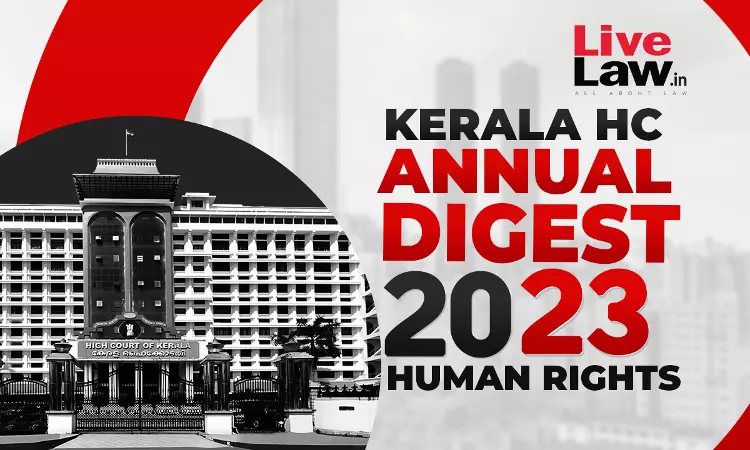- Home
- /
- High Courts
- /
- Kerala High Court
- /
- Kerala High Court Digest 2023:...
Kerala High Court Digest 2023: Human Rights
Tellmy Jolly
22 Jan 2024 3:05 PM IST
'Children Helping Parents In Selling Articles Not Child Labour' : Kerala High Court Orders Release Of Children From Shelter HomeCase Title: Pappu Bawariya and Anr. v. District Collector Civil Station and Ors.Citation: 2023 LiveLaw(Ker) 10The Kerala High Court ordered the release of two children from Delhi who were sent to a shelter home alleging that they were being forced into child labour...
Next Story



